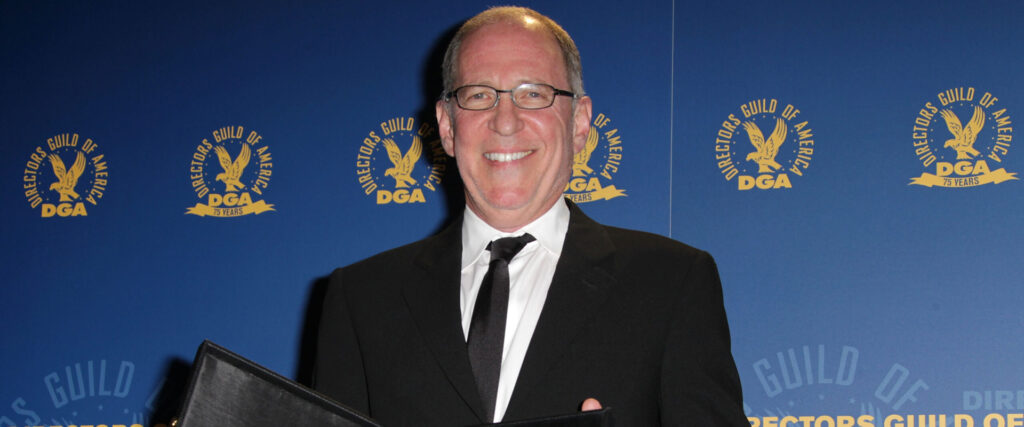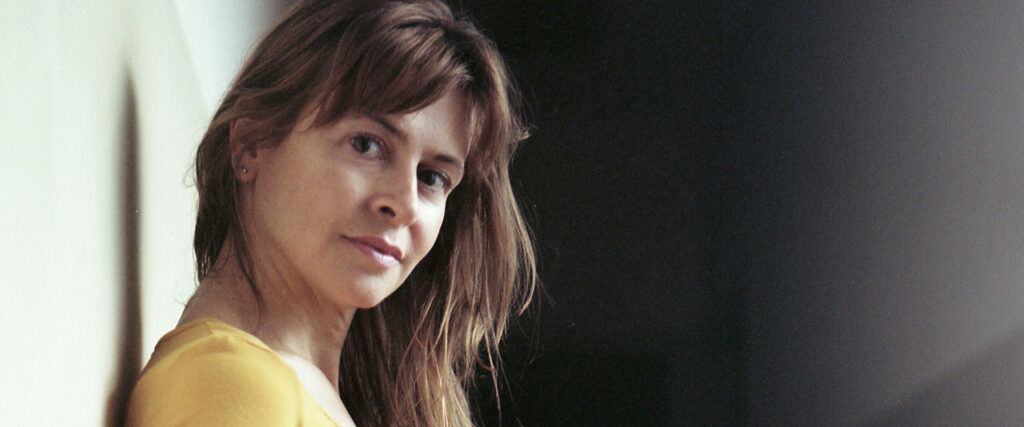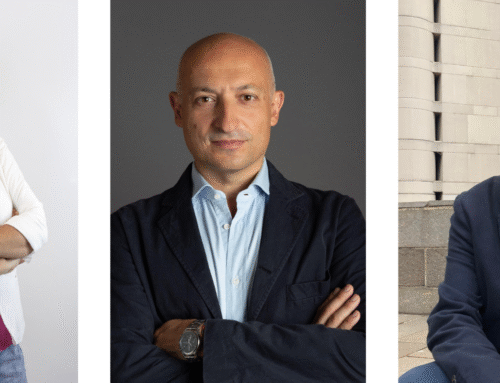Clayton Townsend: Navigating Cinema from Blockbusters to Independent Stories
Production veteran Clayton Townsend took his first steps on a film set as a teenager. Born in 1961 in Cleveland, Ohio, he soon moved to New York and later Los Angeles to pursue his passion for filmmaking. His career spans cinematic classics with acclaimed directors like Oliver Stone (Born on the Fourth of July (1989), The Doors (1991), Natural Born Killers (1994)), the Coen Brothers (Intolerable Cruelty (2003)), celebrated comedies such as Bridesmaids (2011) and Zoolander (2001), and blockbuster action films like Fast & Furious 6 and The Equalizer 3. Recently, he executive produced Netflix’s Emmy-awarded, Italian-set thriller Ripley, starring Andrew Scott.
His solid experience and ability to navigate seamlessly between directors, major studios, and independent production companies enable him to carefully select independent projects to support. This is the case with the upcoming biographical drama The Last Days of John Allen Chau, directed by Justin Lin, known for several Fast & Furious films. With this project, Lin returns to more intimate storytelling, recounting the life of John Allen Chau, an idealistic missionary determined to connect with the isolated Sentinelese tribe on North Sentinel Island in the Indian Ocean.
Was there a specific project or moment that made you realize that the movie industry was your true calling?
Well, when I was 15 years old, I visited my schoolmate in NYC for a summer. His father, Edward Folger, was in the movie business and editing a film he directed called Nanook Taxi in the apartment where we stayed. I listened to the stories Ed told about the business and was captivated by the adventurousness and camaraderie and knew then that I had found the path I wanted to take. As for films that inspired me, I can say that A Clockwork Orange, The Godfather and The Tin Drum were among some of my earlier favorites.
How do you view the role of independent cinema in the current landscape of the film industry?
Since audiences are so diverse and intelligent, I believe that independent cinema is vital to keeping unique and innovative content available. As enjoyable as major studio films are, they tend to be somewhat made for predictable tastes. With independent films being more experimental or out of the norm, it helps keep things fresh. This inevitably allows for creative visions to have a market.
Hollywood is currently experiencing a crisis. What do you think will happen next?
This is an age-old question. I will answer with this quote from the great screenwriter William Goldman who began his book Adventures in the Screen Trade by saying one thing is true in the movie business … “Nobody knows anything”. That said, I am sure that things will settle and get back to a vibrant state very soon. Like after all great crisis, great things will emerge.
Your last projects were shot abroad: Equalizer 3 and Ripley, in Italy and Last days in Thailand and London. Do you think the new tax credit laws in California could bring you back, and could they generally incentivize productions to return to Los Angeles?
A fact about the movie business is that films will always be made where the economics are most appealing. This is absolute. While the size of the overall fund is great, In order for films to return to California in large numbers, there must be a competitive and attainable tax incentive that also includes credit on above the line talent fees.
How has the rise of streaming platforms changed the way you approach production?
Besides the fact that the streamers need more content than we did before, not really. Making films is much the same for all formats. We still has schedules to keep, talent to manage, financial parameters to observe and the desire to make quality stories. This has not changed.
What was your experience like shooting in Italy? How did working in the Italian landscape and culture influence the production process?
Overall the experience was most fulfilling and enriching. The artistry and craftsmanship of the crews, the talent of the actors and the involvement, professionalism and enthusiasm of everyone made for a wonderful experience. The scenic beauty, the historic significance and the varied regional cultures and cuisines is unmatched worldwide. I very much look forward to working in Italy again. And soon!
Share:
Production veteran Clayton Townsend took his first steps on a film set as a teenager. Born in 1961 in Cleveland, Ohio, he soon moved to New York and later Los Angeles to pursue his passion for filmmaking. His career spans cinematic classics with acclaimed directors like Oliver Stone (Born on the Fourth of July (1989), The Doors (1991), Natural Born Killers (1994)), the Coen Brothers (Intolerable Cruelty (2003)), celebrated comedies such as Bridesmaids (2011) and Zoolander (2001), and blockbuster action films like Fast & Furious 6 and The Equalizer 3. Recently, he executive produced Netflix’s Emmy-awarded, Italian-set thriller Ripley, starring Andrew Scott.
His solid experience and ability to navigate seamlessly between directors, major studios, and independent production companies enable him to carefully select independent projects to support. This is the case with the upcoming biographical drama The Last Days of John Allen Chau, directed by Justin Lin, known for several Fast & Furious films. With this project, Lin returns to more intimate storytelling, recounting the life of John Allen Chau, an idealistic missionary determined to connect with the isolated Sentinelese tribe on North Sentinel Island in the Indian Ocean.
Was there a specific project or moment that made you realize that the movie industry was your true calling?
Well, when I was 15 years old, I visited my schoolmate in NYC for a summer. His father, Edward Folger, was in the movie business and editing a film he directed called Nanook Taxi in the apartment where we stayed. I listened to the stories Ed told about the business and was captivated by the adventurousness and camaraderie and knew then that I had found the path I wanted to take. As for films that inspired me, I can say that A Clockwork Orange, The Godfather and The Tin Drum were among some of my earlier favorites.
How do you view the role of independent cinema in the current landscape of the film industry?
Since audiences are so diverse and intelligent, I believe that independent cinema is vital to keeping unique and innovative content available. As enjoyable as major studio films are, they tend to be somewhat made for predictable tastes. With independent films being more experimental or out of the norm, it helps keep things fresh. This inevitably allows for creative visions to have a market.
Hollywood is currently experiencing a crisis. What do you think will happen next?
This is an age-old question. I will answer with this quote from the great screenwriter William Goldman who began his book Adventures in the Screen Trade by saying one thing is true in the movie business … “Nobody knows anything”. That said, I am sure that things will settle and get back to a vibrant state very soon. Like after all great crisis, great things will emerge.
Your last projects were shot abroad: Equalizer 3 and Ripley, in Italy and Last days in Thailand and London. Do you think the new tax credit laws in California could bring you back, and could they generally incentivize productions to return to Los Angeles?
A fact about the movie business is that films will always be made where the economics are most appealing. This is absolute. While the size of the overall fund is great, In order for films to return to California in large numbers, there must be a competitive and attainable tax incentive that also includes credit on above the line talent fees.
How has the rise of streaming platforms changed the way you approach production?
Besides the fact that the streamers need more content than we did before, not really. Making films is much the same for all formats. We still has schedules to keep, talent to manage, financial parameters to observe and the desire to make quality stories. This has not changed.
What was your experience like shooting in Italy? How did working in the Italian landscape and culture influence the production process?
Overall the experience was most fulfilling and enriching. The artistry and craftsmanship of the crews, the talent of the actors and the involvement, professionalism and enthusiasm of everyone made for a wonderful experience. The scenic beauty, the historic significance and the varied regional cultures and cuisines is unmatched worldwide. I very much look forward to working in Italy again. And soon!









